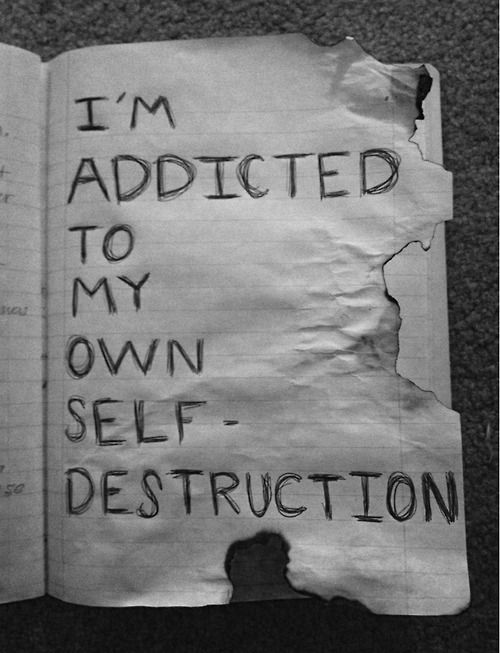Lorelie Rozzano is a guest blogger for Vertava Health. Years of scientific research has shown that addiction is not a moral failing, a character flaw or a sign of weakness, but rather a chronic brain disease. Still, it typically falls under the category of behavioral health. The American Society of Addiction Medicine (ASAM) defines addiction as a brain problem whose behaviors manifest in all other areas. Dr. Michael Miller, past president of ASAM who oversaw the development of the new definition says, “Many behaviors driven by addiction are real problems and sometimes criminal acts. But the disease is about brains, not drugs. It’s about underlying neurology, not outward actions.” Although addiction is about underlying neurology, outward actions drive this illness. Addiction very well may be a brain disease, however, I believe we need to be very careful that we don’t make addicts, into victims. Whether a brain disorder or poor choice, there must be accountability for unhealthy behaviors. It may be difficult to believe that addiction is not about drugs, or alcohol. Substance use is a symptom of something deeper, going on with the addicted individual. The difference between use and addiction is another important factor. Users can experience legal problems, relational problems, overspending and loss of employment. It may take one or all, of the above to happen before the user will say enough and quit. The addict will experience the same consequences as the user and will also try to quit. However, they will be unable to do so. After many attempts, they will eventually quit trying. People who are diagnosed with diabetes, heart disease or cancer, seek professional help. Medications or a hospital stay, may be necessary. A newly diagnosed patient will need to change their lifestyle accordingly, to prevent relapsing back into their illness. [middle-callout] The same is necessary for a person struggling with addiction. Although addicts don’t choose to be addicted, they do make a choice. They choose to pick up the bottle or drug, rather than seek help. They also choose to steal, lie and cut corners. But it doesn’t stop there. Using drugs repeatedly over time changes brain structure and function in long-lasting ways that can persist after the individual, stops using them. PAWS (post-acute withdrawal) can last up to two years. However, it is significantly lessened after a short period of time. PAWS can be determined as mood swings, anxiety, and irritability (for no good reason) tiredness, feeling fuzzy or distracted, low energy or trouble sleeping. Addiction is a reactive and compulsive illness. One drink, snort, toke or injection can make the addicted individual feel better, instantly. It is this ‘quick fix’ which is the downfall of addicts. When I was active in my addiction, there was only now. My intentions were good. I knew I needed to make changes and I planned on doing it. Only not today, tomorrow. But tomorrow would arrive and it would be now, and now, I needed my fix. Weeks, months and years passed. I grew progressively sicker and somewhere along the way, I stopped caring. Justifications, rationalizations and blame were ingrained in my thinking. In other words, my thoughts had become hijacked by my addiction. Every thought I had was geared to allow me to justify my behaviour and rationalize my using. Where once there was healthy thinking, pathological, dishonest and unhealthy thinking, had taken its place. Eckhart Tolle says that addictions begins with pain and ends with pain. That was the case for me. I’d bottled up years of fears, hurt, anxiety and shame. While not every addict starts out abusing substance because of pain – some become addicted through prescription medications – a good many of us, do. Because my brain had been hijacked by my illness, by behaviors grew increasingly unhealthy. Not only could I justify using, I could justify stealing, cheating, procrastinating, yelling, swearing, eating, shopping, and many other poor choices. When I was confronted, I’d turn your words against you. You didn’t love me, therefore it was your fault I was behaving this way. On a side note: Addiction is an illogical illness. Please don’t try and make sense of it. You’ll only make yourself sick, for trying. I’d built a sticky web of deceit and drug dependency and was trapped by my own thoughts and actions. I was a master at reading emotions. I knew who I could play, and who I couldn’t. I knew if you were threatening, or really prepared to follow through with your threats. (Up to that point, there’d only been threats.) [bottom-inline-cta] In the end, it didn’t really matter why I was using, or what scientific name you might apply to give it. What mattered most was that someone intervened upon me. Someone loved me enough to set boundaries and give me an ultimatum. Someone loved me enough – to walk away from me. Maybe what addiction should really be called, is an act of manipulation. Not only did I manipulate others, I was manipulated in the worst way. I trusted my thinking, and it almost killed me. To sum it up, my brain was disordered and I had behavioral issues. Left to my own devices, I was set to self-destruct. If you or someone you know needs help, please call this confidential support line for assistance.
Is Addiction A Brain Disorder Or A Behavioral Issue?


